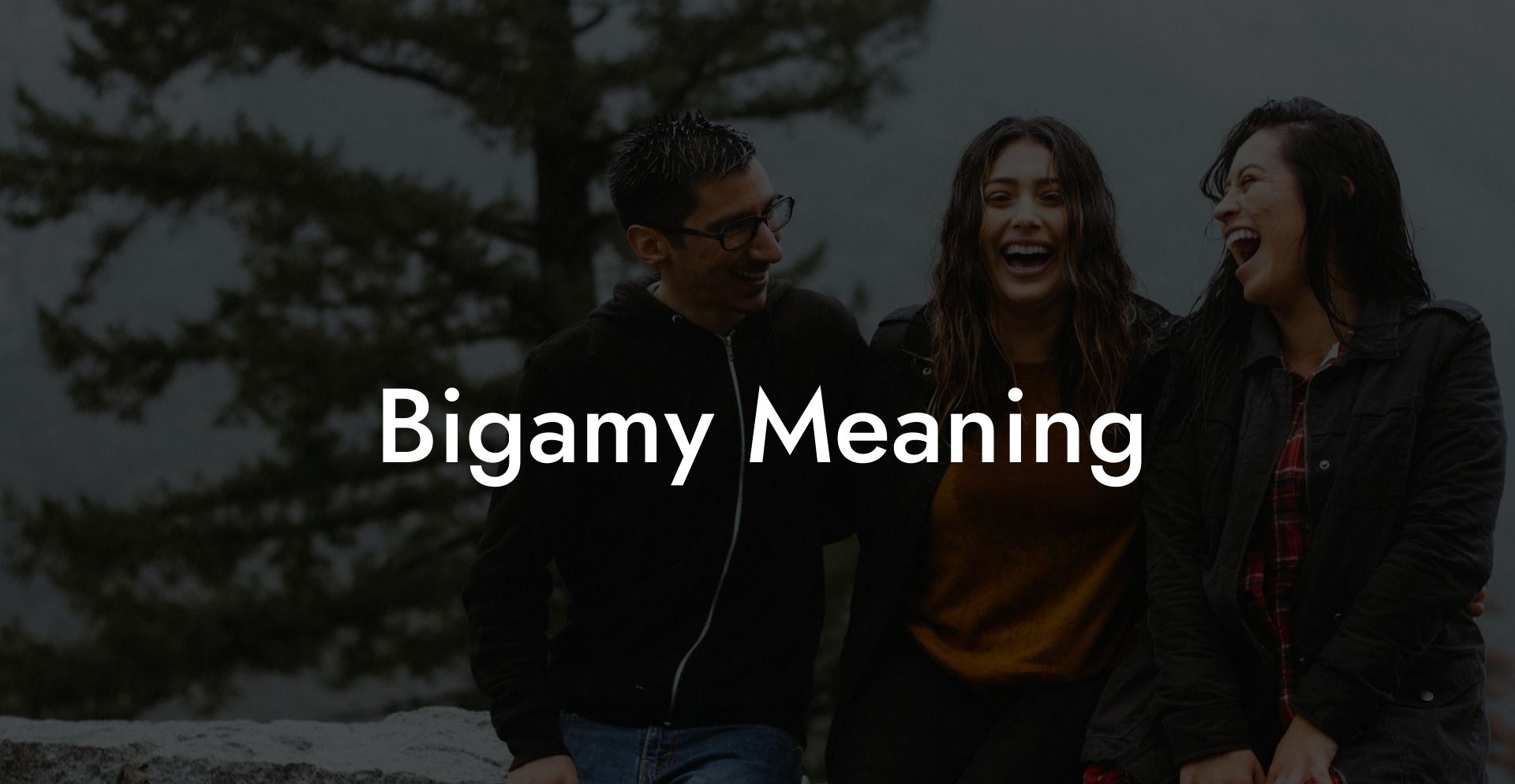In an ever-evolving society, where relationships and marriages are continually redefined, it's vital to be aware of different types of unions and their implications. Among these, bigamy is a concept that often sparks curiosity and raises questions. So, what exactly does bigamy mean, and what are its consequences? In this comprehensive guide, we'll delve into the definition of bigamy, its legal aspects, as well as its cultural and emotional impact on those involved. Join us as we explore this complex topic on The Monogamy Experiment, and don't forget to share your thoughts and experiences with us.
Bigamy, at its core, refers to the act of marrying someone while still legally married to another person. This form of marriage is considered a criminal offence in most jurisdictions, with legal consequences varying across countries and states. In some places, bigamy can even lead to imprisonment and hefty fines.
The reasons for bigamous marriages can vary. Some individuals might genuinely fall in love with another person while already married, while others might knowingly enter into a bigamous marriage for financial, emotional, or other personal gains. It's essential to understand that bigamy is different from polygamy - the latter is a culturally or religiously sanctioned practice of having multiple spouses, whereas the former is often considered illegal and socially unacceptable.
Legal Aspects of Bigamy
Bigamous marriages are deemed invalid in most jurisdictions, as the law recognizes only one legal union between two individuals. In countries where bigamy is considered a crime, the penalties can include fines, probation, and imprisonment. For example, in the United States, bigamy laws and punishments vary from one state to another, with some states considering it a felony punishable by imprisonment (e.g. California), while others classify it as a misdemeanor entailing less severe ramifications (e.g. Maryland).
It's crucial to note that ignorance of one's marital status or the assumption that a previous marriage has ended does not legally justify bigamy. Individuals must ensure they are legally divorced or their previous marriage is annulled before remarrying. To avoid unknowingly entering into a bigamous marriage, it's important to obtain proper legal documentation and complete all paperwork diligently.
Bigamy Meaning Example
Let's consider a hypothetical situation involving Jane and John, who are legally married. Jane is not happy in their marriage and falls in love with Alan. Instead of seeking a divorce from John, Jane decides to marry Alan as well. Since Jane is still legally married to John, her marriage to Alan is considered bigamous.
Suppose the authorities become aware of Jane's bigamous marriage. In that case, they could charge her with a bigamy-related crime, potentially leading to fines, imprisonment, or probation, based on the jurisdiction in which she resides. Furthermore, her marriage to Alan would be declared invalid.
Bigamy is a complex issue that affects various aspects of society, including legal, cultural, and emotional spheres. It's crucial to understand and recognize the implications of this practice, both for those directly involved and for broader societal norms and values. As we delve deeper into different forms of relationships and marriages on The Monogamy Experiment, we invite you to share your experiences, thoughts, and insights with us. Explore our other comprehensive guides and contribute to this ever-evolving conversation on relationships and human connections.













